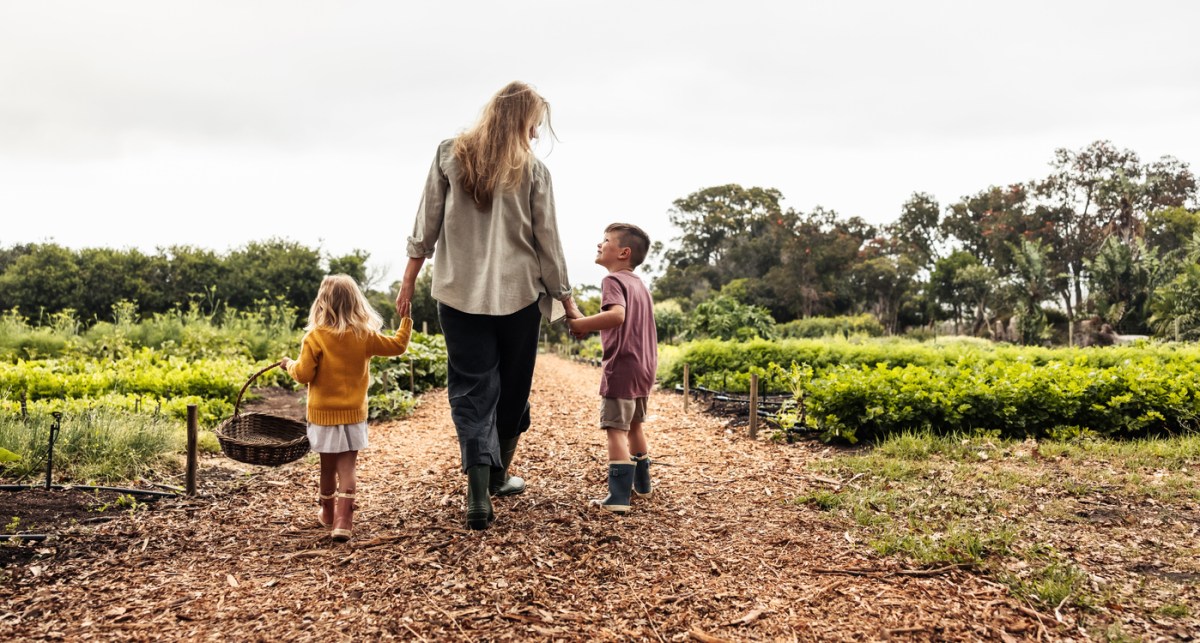Jade Miles is National Program Manager for Sustainable Table, but she wears many hats. She’s a dedicated foodie, committed to helping people bring local, organic food to our tables.
What does your business do, and who are your customers?
Sustainable Table manages a National collaborative fund which is transforming the food system in 3 ways
1. ENABLING We are connecting regenerative projects with philanthropic funds and aligned impact investors for rapid scaling of a new food system
2. CONNECTING We are developing regenerative industry networks, knowledge and capacity and nurturing the conditions for connection, collaboration and cooperation.
3. AMPLIFYING We are collaborating with industry to amplify and tell stories of the incredible game changing work being done.
Our customers are the Australian Regen ag and local food system industry as well as values aligned philanthropic and impact investors.
What’s your mission?
Together with courageous eaters, growers, leaders and aligned funders, we are catalysing the regeneration of Australia’s Food Systems.
The time for change is now and enabling innovation in systems as fundamental as our ecological foundation and the food we eat is critical and urgently requires support but it’s complex and confusing for the uninitiated so we connect the players to enable a dance that expedites capacity and change.
What does it mean to you, to be a ‘social enterprise’?
Everything – eight principles underpin our work from funded projects and investor partnerships to the way we move as a team and live as people.
Transformative – moving away from the safe middle and seeking change around the edges
Regenerative – deep, purposeful and intentional change
Relational – knowing where the human aspect is
Bioregional – realising the power of nuancing things to suit their place
A systems lens – the interactively and connectivity between all moving parts
Decolonising – a steep learning curve for many but we consider foundational
Open source – ensuring all knowledge is shared widely and fairly
Catalytic Capital – respecting that philanthropic funds are precious and need to be allocated accordingly
Can you scale a mission? Are there challenges around growing your business, while also staying committed to your impact thesis?
Given the enormity of change that’s required within the food system to become regenerative and the number of initiatives on the ground we can scale endlessly providing we have the capital. Our single call out for projects generated 54 ‘high value’ projects seeking 23 million dollars worth of impact investment.
Was there a business (either local or globally) that influenced the development of your organisation?
We took notice of the US based Agro Ecological fund in our infancy, we are now looking to thePerennial fund and the Applied Ecological Institute and we are enamoured by the work of Mad Ag. These are all US based initiatives but it’s true that the US leads us in this sphere of innovation.
What’s in store for your business in 2022?
MORE PROJECTS ENABLED: Having launched the collaborative fund in April 2021, we undertook a national ‘discovery phase’ to uncover the breadth and depth of regen and local food system projects. Over 200 projects showed themselves and after rigorous assessment, the first round of 10 transformative projects have received funding. Now we need to secure further funding for further enablement.
REGENERATIVE INVESTMENT ROADMAP:
To date we have relied on philanthropy, but it is a small and precious pool of capital. Our work across the industry to date has revealed a huge opportunity and need for other forms of investment.
This foundational period, and the many accompanying conversations across impact investors, farmers and allies has revealed that we lack a coherent understanding and systems view of how to unlock and deploy other forms of capital into regenerative food and farming in the Australian setting. It has also shown us that many of the investors who are interested in the ‘regen’ space are looking for guidance and clarity around where, how and who to engage with, as are practitioners on the ground. There is a cultural divide here that needs to be navigated for vastly different paradigms are attempting to work together, and it is in this relational space that things have, and can, become unstuck. We don’t have the kind of time anymore, in this critical decade, to keep fumbling in the dark, hoping that good intentions will be enough to make it work. In short, we need a roadmap for unlocking investment in Australia – one that is informed and shaped by the unique challenges and opportunities we face, tested and prodded by those working and living and breathing this work. We need a roadmap that is capable of driving regeneration across this incredible and singular continent we call home.
ONLINE NATIONAL INDUSTRY MAP: We are developing regenerative industry networks, knowledge and capacity. Through targeted industry support this open source map will share the details of organisations and initiatives from right across Australia, we are nurturing the conditions for connection, collaboration and cooperation. This national-wide online map will enable an open-source knowledge commons so that others who share our passion and purpose can also learn the moves to grow and succeed.
A live, multi-layer data model, allowing for various tiers of information to be shared, will be created. This will allow the user to segment the map according to bioregions, sectors and key themes across the Australian Regenerative food industry, identified through our Discovery Phase. The map will be carefully designed to target the needs of 2 of Sustainable Table’s 3 key audiences; the regenerative food industry and aligned supporters (philanthropic donors & impact investors).
Once live, the map will be circulated widely to industry who will be engaged via our industry development team to utilise the tool for connection, knowledge and leapfrogging in their own initiatives.
Subscribe for all the latest impact news

